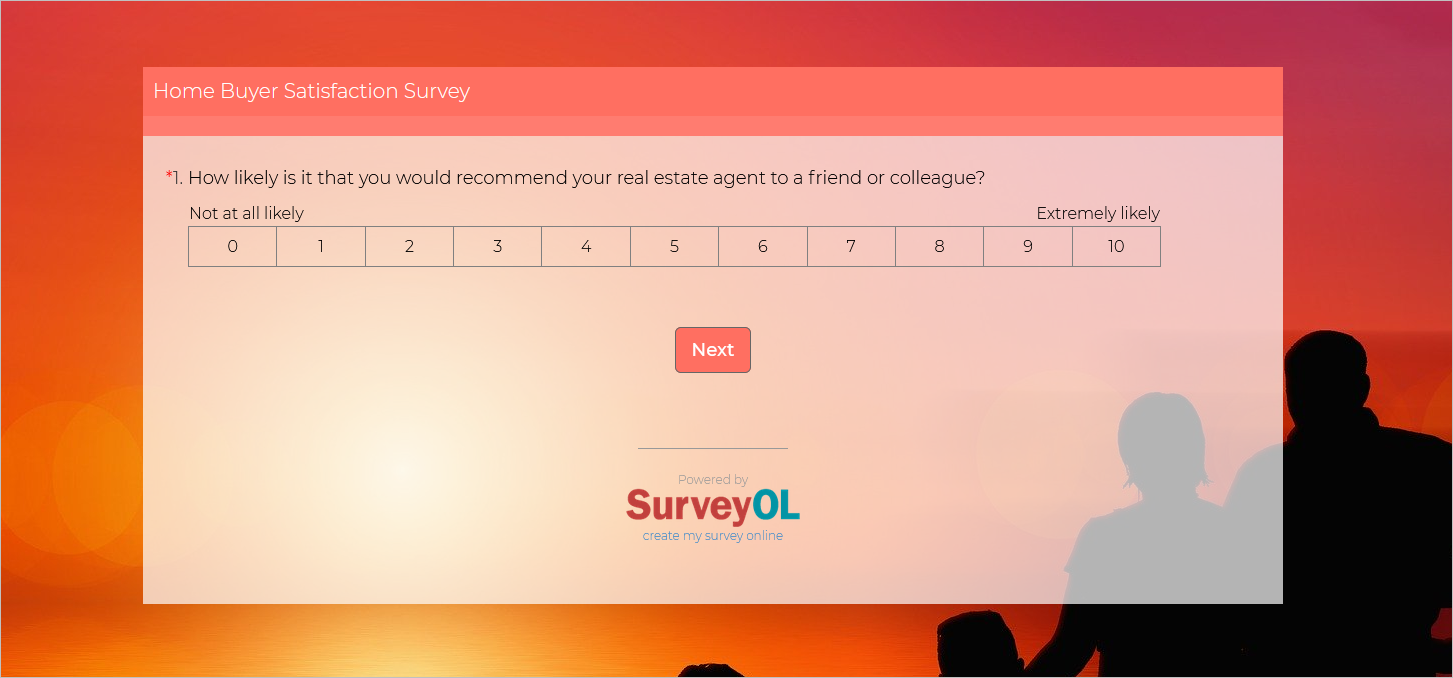Real Estate Market: Achieve Success with Effective Surveys
Rich Nelson
13 minutes
13 minutes
Jump To:
- Definition: What is a Real Estate Business?
- Profitability
- Appreciation
- Real Estate Profits Through Income
- Starting A Real Estate Business
- Summary
Definition: What is a Real Estate Business?
Quite simply, it's a business concerned with the buying, selling, management or investment of real estate properties. Starting a real estate business is not easy, but with the right preparation and persistence, you can achieve success.

Profitability
The most conventional way to attain profitability is through appreciation. Appreciation, by definition, is an increase in value of an asset over time. The asset can be residential properties, commercial properties, and even undeveloped land. A profit is realized by selling these assets after they increase in value. Timing is always the differentiator between profit and loss. Secondary avenue for generating profit is via regular payments or rent income.
Appreciation
For residential properties, location is always the key appreciation factor. A growing neighborhood that is acknowledged for better schools, offers new shopping centers, playgrounds—anything that makes the location a more desirable place to live adds to home value. Home improvements also add value. In turn, your business is capable of making significant profit through house flipping or rehabbing. Commercial properties work in a very similar way to residential by gaining profit through developments in the same location and by improving the property.
Real Estate Profits Through Income
Rent is the key to generate income for residential and commercial real estate. Tenants pay a monthly fee subject to periodic increases via inflation and demand. After deducting your maintenance costs, the remaining monies can be claimed as income. Invest in a desirable property location that easily attracts a constant flow of interested tenants.
Starting A Real Estate Business
A note of caution: Owning a real estate company is not stress-free. Quite the opposite. Similar to starting any business, entrepreneurs must do the necessary homework by conducting exhaustive research and then creating a full-fledged business plan before actually taking the first step. Below are the key steps tips you should follow in order to successfully open the door to your real estate firm:
1. Set Your Business Goals
Be sure to not shortchange yourself. Take sufficient time to fully think through your future plans. This entails your personal, professional and financial goals. Project your plan out for the next year, then two to three years, and five years out. Clearly formulate the measures dependent to achieve them. Never underestimate the importance of this process. Once you have your goals clearly stated, they should keep you focused and prevent pointless digressions to your future success.
2. Perform Detailed Research
Do not jump into the real estate investing world without first properly educating yourself. You must learn the proven techniques in finding the best deals, how to market yourself, the art of negotiation, and, most importantly, how to finance deals. A successful business plan is dependent on in-depth industry research. The results of this painstaking work should ultimately identify a specific niche, market location, and the strengths and weaknesses of your local competitors.
Your research should then focus on the ideal market location for your investing niche. Considerable time should be given to studying median home values and rental prices. Then create a "pros" and "cons" list of each neighborhood warranting attention. Don't place limits on your research. Use the web, attend appropriate networking events, and even consider taking on a possible mentor, an industry veteran who can point you in the right direction. There is never too much research. All the knowledge gained from this homework will give you more confidence when developing your business plan.
Employing quick and easy-to-understand client surveys will provide you with a better understanding of each buyer's wants and needs, the property type and location desired, and how much they are willing to spend to acquire the property.
There are a number of simple rules to follow when creating the survey:
1. Avoid Yes/No Questions Only which give you no insight into the thoughts of the respondents. This question type should always be accompanied by "Why?" with a text box to enable the respondent to explain his or her opinion.
2. Keep the Questions Simple with only one idea at a time.
3. Try a Net Promoter Score Question (NPS) to help you gather key data on critical issues. (Example: "On a scale of 1-10, how likely would you recommend our real estate firm to a friend or business colleague?") These responses lend themselves to future analytical graphs and charts.
4. Test the Survey before you forward it to your targeted audience. Ask your partner(s) and friends to review the survey to ensure it is devoid of grammatical errors and none of the questions might be the source for potential confusion.
Potential Survey Questions
There are undoubtedly a never-ending number of survey questions you would probably like to ask your clients. There is so much you need to learn to better understand their perceptions and values. There are, however, four fundamental topics that deserve your immediate attention.
1. Key Client Information
"What is your marital status?"
(Single, Married, Divorced, Separated, I don't wish to disclose)
"How many are in your family?"
($50,000 - $70,000, $700,001 - $100,000, $100,001 - $150,000, $150,001 - $200,000, $200,001+)
($50,000 - $70,000, $70,001 - $100,000, $100,001 - $150,000, $150,001 - $200,000, $200,001+)
(Self-employed, Salaried, Unemployed, Other: Explain)
"Where are you employed?"
"If applicable, where is your spouse employed?
"What is your current address?"
"Is that your primary residence?" (Yes/No)
"Do you own now or are you renting?" (Own/Rent)
"Which kind of property do you now reside in?"
(Apartment, Mobile Home, Private Home, Condominium, Other: Explain)
"If applicable, must you complete the lease period before buying a new property?" (Yes/No)
"If you are leasing, how long is the lease?"
(Brokers, Family/Friends, Internet, Real Estate ads, Other: Explain)
2. Property Related
"What is the price range of the properties you are interested in?
(<$200,000, $200,000 - $250,000, $260,000 - $300,000, $310,000 - $360,000, $370,000 - $420,000, $430,000 - $500,000, >$500,000)
"How many bedrooms? How many bathrooms?
"Do you have a total square footage target for the house in mind?"
(Yes/No, "If Yes, why didn't you buy?" (Explain)
"How long have you been looking?" (Explain)
"Are you now working with another salesperson/broker?" (Yes/No, Explain)
"What is your motivation for purchasing this property?" (Explain)
"Will this be your primary home or for investment purposes?" (Explain)
"Generally speaking, where would you like the property to be located?" (City/Urban, Suburban, Rural, Other)
"Is there a specific city/town you are interested in?"
"Is there any specific type house you are interested in?
"Do you have a list of "must-haves" when searching for a new property?"
"Are there any special requirements for your new property?"
"If you get the right property, can you make a decision immediately?"
(Yes, Maybe, No: Explain)
(Explain)
(Zillow, Trulia, Redfin, Knock, HomeFinder, Other: Specify)
3. Financials
"What is the monthly mortgage amount you would be comfortable in paying?" (Enter Amount)
"How do you plan to purchase the real estate property?"
(Self-funded, Loan from Financial Institution(s), Loan from Family/Friends, Other: Explain)
"Has a lender pre-qualified you a specific amount?" (Enter Amount)
"What is the name of the lender that pre-qualified you?"
"Do you have a budget for monthly payments?" (Yes/No Explain)
accompany the purchase of a home, like insurance, local real estate taxes,
maintenance, water/sewage, etc.?" (Yes/No, Explain)
4. Contact Info
"What times are best for you to look at potential properties?"
"How do you like to communicate?" (Phone, Text, Email, Fax, Other:)
Keep Your Surveys Short and Simple
Now that we've established the survey questions critical to your research, it should be noted that the best surveys are typically short (five question limit) and tend to be completed in less than 5-10 minutes. As you probably have noticed when you've been asked to take part in fairly long questionnaires, fatigue often sets in and there is a tendency to either abandon the document or just complete the survey without much thought. Research professionals believe you should only ask questions that you are confident can be answered immediately. There is no need to rush. Everything else can be asked at a later date.
Looking for the right real estate survey template? Visit https://www.surveyol.com/surveytemplates for assistance.
3. Organize Your Finances
It's essential to have ample capital when you fully establish the business. The safest plan is to have enough principal put aside to run the business for at least one year, along with the financial resources to handle unexpected costs and increases.
If you approach a lender, they will require financial history information. In preparation for such a request, it is critical for you to request of copy of your credit report. Take a look at your existing accounts and any investments made in the past. This extra step will make you better prepared when you sit down with the lending institution.
4. Develop Your Unique Business Strategy
Once the research has been completed, you should start thinking about your distinctive approach to success in your market. Then execute a thorough business plan that specifies the resources and tools you will bring to this endeavor.
A successful marketing strategy is essential for any real estate firm. You need to ask yourself, "Do I have a unique selling proposition?" Once you can confidently answer this question, you should launch a distinctive brand for your business and subsequent marketing campaigns. It's also the perfect time to choose a logo, nail down your core values, and create an overall mission statement. Once you've made these critical decisions, it will provide the blueprint on starting the process of pursuing potential clients and help you create your initial marketing materials.
Once you've crafted the above foundation, it is time to get started on your first advertising campaign. Below is a list of common marketing approaches:
• Email Campaigns
Email is an excellent approach as long as you can gather enough contact information. This may take time if you build the list from scratch for prospective property owners and buyer targets. If time is of the essence, you can invest in renting an already vetted mailing list from a company that specializes in this activity in your immediate area. You should also work with email professionals who will help you create an eye-catching subject line and visuals to ensure it is opened and generates leads.

Please visit:
Home Buyer Satisfaction Survey Template
Home Seller Satisfaction Survey Template
• Direct Mail
Even in this digital age, direct mail still has a place. Real estate professionals are constantly using postcards (of all sizes), handwritten letters, and fliers to locate potential sellers. The most important lesson to be learned from direct mail is persistence: unless your list is inaccurate or your message is way off, your response rates should increase on the second or third mailing.
• Social Media
Don't miss out on this opportunity. It's free to create profiles across Facebook, Twitter, Instagram, and LinkedIn. Once you've created these pages, don't ignore them. Be sure to periodically post updates to keep your page fresh and interesting. At some point, you can leverage your presence with paid social media advertising.
• Networking
Another key necessity. Start attending local real estate events, make new industry contacts, and keep meticulous records on each new name you capture. It's also time to lean on your real estate mentor, if you have one, to introduce you to his or her contacts.
• Bandit Signs
Bandit signs are posters that can be viewed at popular intersections with messages like, "We buy houses!" or "Call us for a cash offer!" Why are they so ubiquitous? It's because they work. Use them to spread the word about your firm. A note of caution: Make sure they are legal in your area.
5. Create an Effective Website & Social Media Pages
There are a number of key issues you need to address to make the new website productive. It should serve as the primary communication device to reach new clients. All key decisions should support this focus as you create the site.
1. Pay attention to the images shown. High quality photography is a must.
2. Differentiation is a necessity on the web. Clearly write about your real estate firm and what you bring to the marketplace. You only have a few precious seconds to get their attention.
3. Make it Easy to Find Your Location, Hours, and Contact Information. It seems so basic but many websites either do not prominently display this data or have chosen to hide it on specific pages within the website. Proudly show it on your home page and be sure to link your address to Google Maps and a special telephone link so that everything can be accomplished in just one click.
4. Sign Up for Google Analytics (GA) to judge how your website is performing. GA (it's free) will tell you how many visitors you've attracted, how many bounced back to the search engine when they landed on your home page, the average time spent on your site, what the visitors are viewing, etc.
5. DIY or Hire an Outside Agency. Some realtors prefer to be in total control of their website, from creation to release to periodic maintenance. There are inexpensive "off the shelf" websites that can be purchased so you can be online in just a few hours. Others prefer custom websites which require professional web design agencies. It's a difficult decision. You must decide whether you simply need a web presence (perhaps at the outset) or one that completely does justice to your firm. It should be noted that a web design agency will also help you develop an online marketing strategy that will complement other advertising efforts to build your brand.
6. Getting Feedback. It's important to learn as much as possible about the effectiveness of your website and the specific pages within it. You can either survey your website visitors via an email collector or a website embedding collector. These periodic surveys will provide you with indispensable feedback to improve your website.
Please visit:
Website Feedback Survey Template
7. Do not neglect social media in generating and maintaining interest in your real estate business. Be sure all interested parties can find you on Facebook, Yelp, and Twitter. It's important to approach these branding opportunities with the same mindset given to your website. Make them as inviting as possible with superior content—outstanding images and text—that will drive these visitors to your firm. Leverage these platforms by communicating upcoming open houses, events, new sales associates, new developments starting in your area, new restaurants opening—essentially anything to reward these visitors with incentives to follow you.
6. Stay on Top of All Leads
One safe rule to follow: Never launch marketing campaigns without a plan to track and follow up with your leads. Even if someone is not an immediate opportunity, developing a relationship over time may eventually earn you their trust and business. It may seem obvious but there are 10 tried-and-true rules for generating leads:
1. Always start with the people you know as your foundation.
2. Nurture and grow all existing and new relationships (it takes time) by staying in touch with everyone on your contact list initially every 6-8 weeks..
3. Host open houses as often as possible to continually connect with fresh prospects looking for real estate.
4. Leverage social media (Facebook, LinkedIn, Instagram, Quora, Slack, MeetUp).
5. Attend Chamber of Commerce events.
6. Reach out to "For Sale By Owners (FSBO's) whose listings typically sell for less than market value and could sit on the market for longer than necessary. This is where you come in.
7. Give free seminars at your local library, school, community center or career fair to establish your credentials and, hopefully, turn a percentage of the attendees into leads.
8. Invest in social media advertising. Launch Facebook and Instagram ads on a modest budget, target the demographics in your audience, and then use the opportunity to announce open houses/new listings for immediate relevancy. After some trial and error, you should start to see solid returns.
9. Partner with local divorce attorneys to refer their clients to you (with appropriate compensation) who may need to sell or find new homes quickly.
10. Never lose touch with your previous clients. They can provide you with much needed recommendations, the names of friends and colleagues who may be moving, selling or renting in the neighborhood.

Summary
Opening a new real estate office can seem overwhelming. It will take considerable time and effort to obtain considerable traction in your community. There is no shortcut to success but there are, in summary, three critical elements you must adhere to at the outset:
- Clearly define, in writing, your short and long-term goals long before you start the business. You should reference these goals on a periodic basis to ensure you have not strayed from the initial rationale for launching your firm.
- Have total confidence in the adequacy of your financial resources. This mindset is totally dependent on acquiring a competent accountant and keeping a close eye on your income and expenses. There must be no surprises.
About the author:

Rich Nelson has been a senior marketing executive for over 35 years. The key focus throughout his career has been helping small to medium size businesses succeed in an ever-competitive marketplace.




